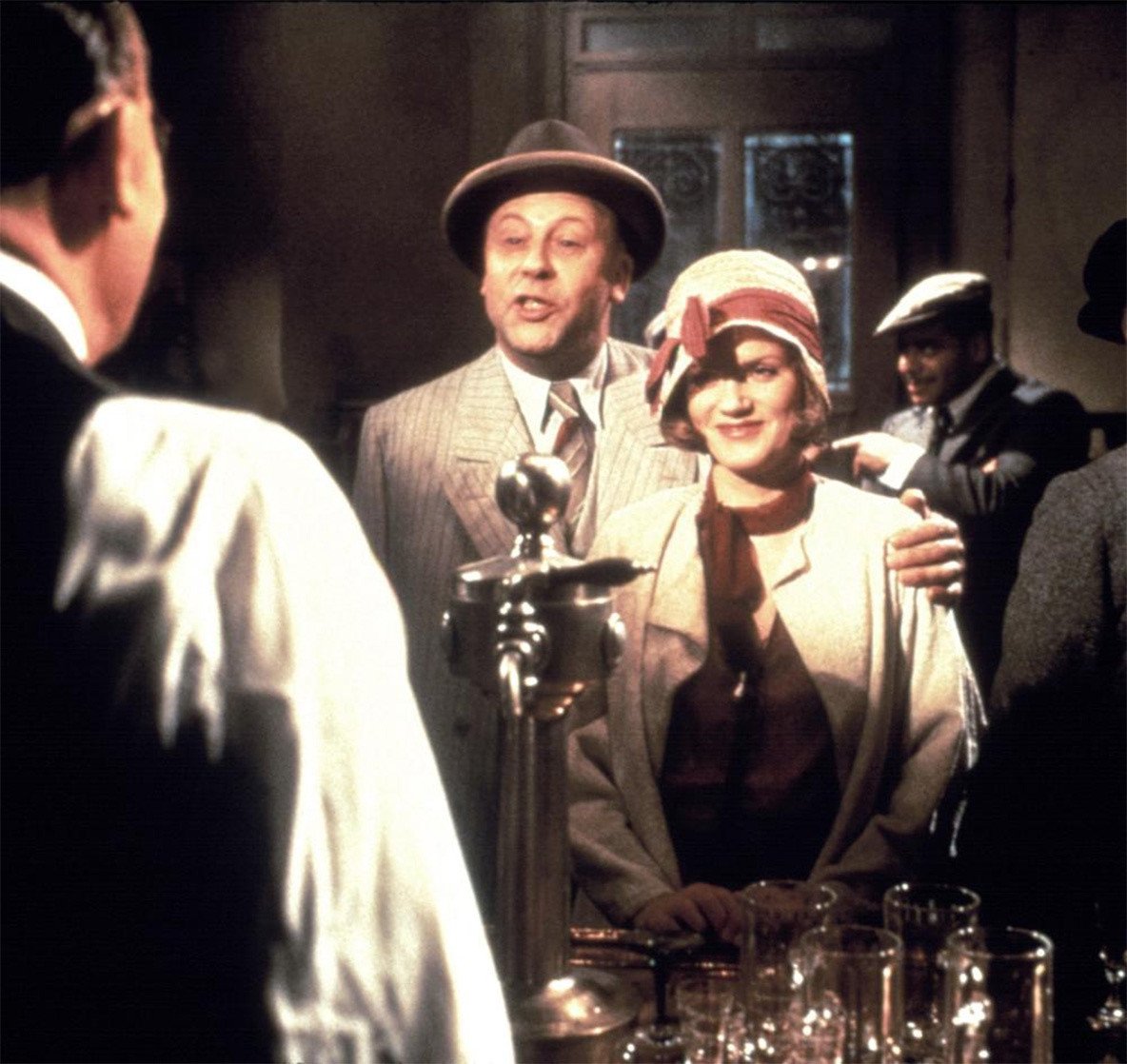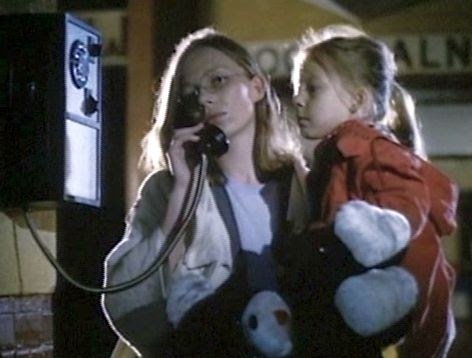When Great Filmmakers make Great Television by Craig Hammill
This month, it was heartening and humbling to see so many committed people come out to watch Rainer Werner Fassbinder’s 15 hour Berlin Alexanderplatz , Ingmar Bergman’s 5 hour and 20 minute full television version of Fanny and Alexander , and Kyrzstof Kieslowski’s 10 hour The Decalogue.
These television works, by world famous directors obsess me. The longer television form allows for a kind of exploration, expression, experimentation that can yield some of the most mysterious and intriguing fruits.
I’ve always had an informal rule with myself. Which is kind of stupid because I’ve never made even one feature. So let’s see if I keep to it if I’m lucky enough, God willing, ever to make features. But that rule is that usually one should aim to make a feature under one hundred and twenty minutes.
Once you cross that two hour frontier, you better be a damned good storyteller with a sense of pace, rhythm, propulsion. Maybe more importantly, you better damn well know why you NEED over two hours to tell your story.
And thus that rule is even more important when you decide you need 5 hours, 10 hours, 15 hours to tell your story.
But when a storyteller really does have a handle on their craft-as I believe Fassbinder, Bergman, and Kieslowski did in making these all-timer works-the TV form becomes an embarrassment of riches. You get more cinema, sequences, scenes, storytelling than you ever could have hoped for.
Let’s start with Fassbinder’s Berlin Alexanderplatz. Shot in 150 days (an incredible pace when you realize that means Fassbinder was shooting the equivalent of a 90 minute feature film every 15 days), Berlin Alexanderplatz is an adaptation of the famous 1920’s German modernist novel by the same name by Alfred Doblin. It tells the story of Hans Biberkopf who gets out of prison in chapter one after four years for the abusive accidental death of his girlfriend and tries to go straight. Even more, he tries to become a truly good person.
The next 15 hours are basically how that can’t happen.
As dour as that might sound, Berlin Alexanderplatz is paradoxically a vital and artistically thrilling work. Fassbinder devotes the first 13 episodes to a heightened realistic style. There are sequences-like when Biberkopf and his adversary/love Reinhold begin to trade women and we see the first trade happen in an extended 40 minute sequence in Biberkopf’s apartment or when the prostitute Mitze, Biberkopf’s new love, is murdered by Reinhold in the forest in a horrifying single take that grows with Brechtian power as we realize what is happening-that put you in an unexplainable fugue state.
But the most shocking revolutionary cinematic act of the piece is the final 2 hour epilogue charting Biberkopf’s madness after Mitze’s murder.
Suddenly, Fassbinder breaks with his hyper-realist style and throws us into a phantasmagoria of angels, Kraftwerk music from the 1970’s, crucifixtions, orgies, all the characters re-appearing.
It’s impossible to describe the cathartic effect here. Though it charts Biberkopf’s final fall into mediocrity (his madness breaks his spirit and he becomes a proto-fascist ready to accept and blindly follow a demigogue like HItler), it also is so DARING, so AMBITIOUS, you can’t help but thrill at watching a moviemaker go for it.
You suddenly understand why Fassbinder adopted the hyperrealist style for 13 hours, he understood you needed that contrast for the final 2 hour transcendent style to have its impact.
Ingmar Bergman made Fanny and Alexander as a summation movie. Though he would live 20 more years and make a number of television movies afterwards including his final brutal Saraband, nothing in his filmography could prepare us for the Dickensian joy, mystery, and dense storytelling of his 5+ hour television limited series about a brother and sister who come from a joyous, live loving, theatrical family of actors and restauranteurs. When their theater owner father suddenly dies, their mother, lost and confused, marries the local Lutheran bishop who turns out to be a vain cruel sadist. But then, with the help of a Jewish family friend who also seems to possess the ability to perform magic, they escape and all is restored to joy and vitality by the end.
This work, one of my personal favorites of Bergman’s, is shocking specifically because it is so joyous. Bergman hadn’t made a work this positive since Wild Strawberries 24 years prior.
It begins with an 80 minute episode that takes place entirely across a Christmas Eve night as the Egerman family throws its annual big party. We see all the levels from the kids to the secret romances to the dysfunction but by Christmas morning, we feel we’ve really been through a joyous event. This sequence is one of the greatest first acts of all cinema. It takes its place, in my opinion, along with Coppola’s wedding opener for The Godfather and Cimino’s wedding opener for The Deer Hunter as an uninterrupted happening all in one day first acts that lays out the dynamics of an entire community or subgroup of people.
But what differentiates Fanny and Alexander from Bergman’s other work is its surprisingly novelistic magical realist tone where the everyday, ghosts, magic all co-exist.
This has personally fascinated me because Bergman famously declared himself an atheist in the mid-60’s after a decade of wrestling with his spiritual beliefs in cinematic works like The Seventh Seal, Through a Glass Darkly, Winter Light, The Silence. And while I suspect he may have more or less stuck to this to the end of his life, Max Von Sydow, one of his go to actors, cryptically once admitted in an interview that Bergman did believe in life after death and PROVED it to Sydow after Bergman’s own death (!!).
Fanny and Alexander seems to open the door back up to some kind of transcendent level, some kind of REAL magic tied to energy and emotion and will power and desire. It’s a darker more mysterious inscrutable energy but for the first time in decades, it’s there in Bergman.
Fanny and Alexander also beautifully captures the joy of family and community and interacting and socializing and creating and expressing and loving and living.
Kyrzstof Kieslowski’s Polish 10 hour TV cycle series The Dekalogue explicitly tackles the ten commandments of the Torah, the Old Testament in ten 1 hour episodes. Some are tragically devastating (Dekalogue 1). Others are stimulating, unsettling dialogues on the vagueries of human nature, moral and ethical systems and impulses like Dekalogues 3, 4, 6. Some are firmly grounded in the struggles and conflicts of the secular like murder and the death penalty in Dekalogue 5. And one is even an outright hilarious comedy- Dekalogue 10.
When you hear that a filmmaker has decided to make ten 1 hour episodes about each of the ten commandments, you might feel she or he has set a pretentious high falutin bar they are not going to clear.
Kiesklowski’s series (co-written with the brilliant Krysztof Pieciwiscz) somehow firmly grounds each episode in the real life struggles of the everyday. The series is anything but ethereal. Instead it dives deep time and again into issues of parents and children, infidelity, loneliness, emotional longing, human cruelty, miscommunication, stunted personal growth, sexuality, morality, ethics. The intense struggles that dominate our existence.
Dekalogue 7 “Thou Shalt Not Steal” tells the story of a young woman, Majka, who steals her own 6 year old daughter, Ania, with the intention to run off. Because Majka was only 16 years old, her daughter has been raised as her sister by the grandmother who never felt warmly towards her own daughter and now treats this girl as her own. The grandmother doesn’t want to give Ania up or share her.
It’s hard to explain just how complex this episode is. We feel for the young woman and totally understand her feeling of being robbed. Yet we can also see she’s not equipped to be a good mother. She doesn’t have a maternal instinct. A genius real character touch we believe.
We can see that the grandmother has “stole” the daughter just as the young woman has now “stole” the daughter. But we can also see that in both instances, the “theft” is wrong no matter how intentioned at the time.
The story doesn’t resolve nor offer an answer. The ending in fact is irresolute. And thus we are left to ask questions, ponder, consider, wrestle with the decisions humans make in times of crisis.
It is the height of artistry to me to tackle thorny issues in an honest, stimulating, brave way but also have the humility not to feel one can offer a final answer or directive. How could one when humanity has wrestled with these issues for ten thousand plus years? It feels like hubris to do so.
But still we must and should engage and explore and examine and dialogue and debate.
In each of the instances above-Berlin Alexanderplatz, Fanny and Alexander, The Decalogue-world class moviemakers took on the long form TV limited series and made singular works that stand as one of the best in their whole body of work.
It’s thrilling and exciting when one gets to experience such a work. It’s also humbling and daunting. In each of the instances, the filmmakers collaborated with an incredibly committed team of artists from the actors to the composers to the screenwriters to the editors to get these works over the finish line. So it also bears acknowledging that such works are completed by TEAMS not individuals.
Who out there has that burning limited series idea that will be the next cinematic revelation on tv? I hope it’s me. I hope it’s you.
Craig Hammill is the founder.programmer of Secret Movie Club.





